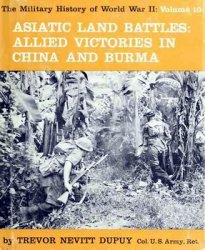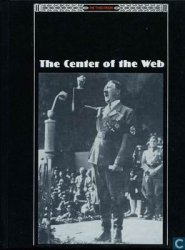A severe storm forced Maunganui to anchor where the roadstead was crowded with vessels flying flags of many countries, all waiting for the weather to improve. Later, as the ship proceeded down the Channel, David had his final glimpse of the white cliffs of Dover. Rising forbidding from an angry sea with ominous clouds above, they seemed to epitomise the rugged British defiance, its people stalwart against the turmoil of war. England, bastion of freedom, unconquered since 1066. And he had played a part in her history.
In violent conditions in the Bay of Biscay, David, one of the few still on his feet, spent the solitary hours reliving his memories as he painstakingly made a model Lancaster.
Maunganui steamed through the Mediterranean, scene of so many recent naval battles, and Italy’s defeated navy beached at Taranto; onwards into Suez, that other amazing canal, and its bustling Port Said; through fierce

Model Lancaster made by David on voyage, with RAAF cap badge
Desert sandstorms into the Red Sea’s searing heat; into the cooler Indian Ocean.
In colourful tropical Colombo, their third port of call, David bought a handmade lace tablecloth for his mother. Then, standing by the ship’s rail watching the silhouette of Ceylon’s mountains receding, David envisaged the welcome being prepared for him. His mother baking, his aunt polishing, while by the front steps his father placed pots which he had planted weeks before with red and white petunias and blue lobelias, and his uncle contrived some little treat, the way he had always loved to do when the boys were small. Would they come to the ferry to meet him? Or would he surprise them? Arriving unannounced. Running up the slope to the house where an Australian flag and a Union Jack had been draped by the front door, and where a big sign in his aunt’s careful printing proclaimed, WELCOME HOME DAVID!
He looked up into the sky. Not long now before he would see the Southern Cross again _
Since he had left home in May 1943 he had circumnavigated the world. Not as fast as Jules Verne’s Phileas Fogg, but with a great deal more at stake. In thirty-three months he had experienced something of life and culture in New Zealand, Panama, USA, England, Scotland, Wales, Eire, Italy, Egypt and Ceylon. And he had fought against Nazism and all its evils, helping win the victory. He had not made a Jules Verne journey to the centre of the earth. But he had been to hell. And back, thank God. And to heaven, too, in the exhilaration and ecstasy of flying: Tiger Moths, Oxfords, Ansons, Wellingtons, Halifaxes and Lancasters. He had felt the joy of taking off into the unknown, soaring above the clouds, discovering distant horizons. He had seen the earth from 20 000 feet and more. On wings heaven-high. And he had made a journey to the centre of his being. A long deep journey.
By the last light of northern stars he watched the ship’s wake foaming and glittering and took a deep breath of the warm salty air. One more day and they would reach the Equator.
Everyone counted the days, the hours, until their longed-for Australian landfall. Each advance of the clock was a bonus and when seagulls began to follow the ship there was great excitement. One gull landed on the deck and was treated like a VIP. Binoculars were pulled from kitbags as everyone began contending to be the first to see the coastline. Who would be first to smell the welcoming scent of eucalyptus?
When they woke on Sunday 10 March 1946, the low
Coastline of Western Australia was in sight. By 9 am the ship had berthed in Fremantle and there was a rush to get ashore. To set foot on Australian soil. Again. At last.
Squinting in the bright sunlight, surprised at how low the buildings all looked, David made his way to the city and found the GPO. Carefully he counted out the coins in his pocket, so different from the English ones he had become used to. No farthings here. Anyway, it would cost more than farthings for a trunk call to Tasmania. But it would be worth every penny, every shilling, every florin with its kangaroo and emu coat of arms. He booked the call and waited.
Lucky that WA time was behind Tasmanian, David thought. His parents should be back from church by now. He could almost smell the Sunday roast. He could hear the phone ringing. Echoing down the long hall. He could see his mother coming from the kitchen, wiping her hands on her apron as she hurried. His father was hastening in from the garden. Who would get there first?
His mother answered.
‘I’m home!’ David shouted. The line echoed. Home, Home, Home.
He could hear the tears of joy in his mother’s voice as she said, ‘Welcome back, Viddy! Everything’s ready here for your coming!’
Then he set off to see his uncle and aunt, the parents of Frank, who would never come home.




 World History
World History









